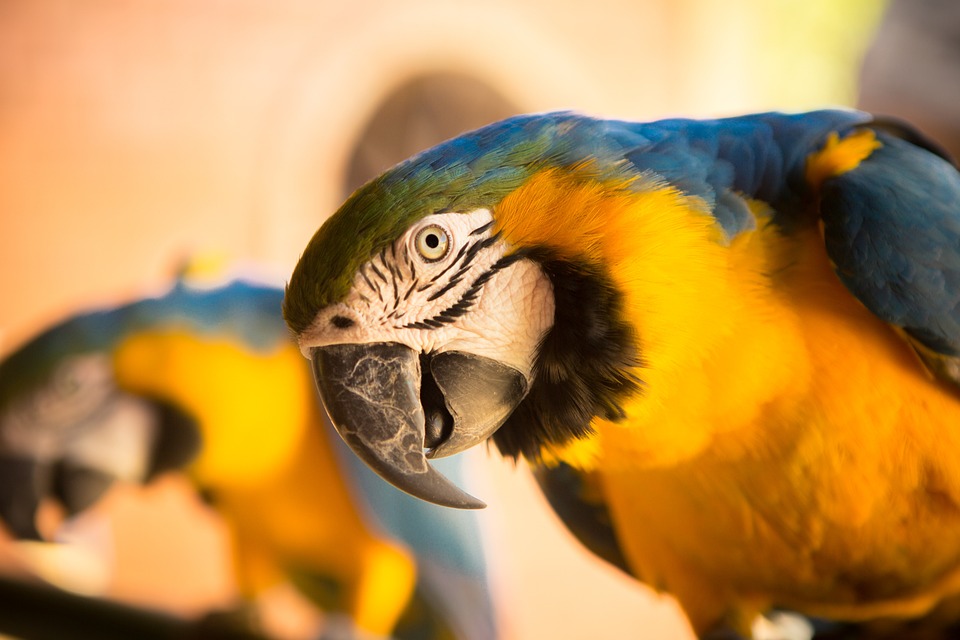Feather plucking is a common behavioral issue observed in parrots that can lead to serious health problems if left unaddressed. As an avian enthusiast and SEO expert, I have compiled this informative article to help you understand the underlying causes of feather plucking in parrots and provide effective solutions to tackle this issue. Read on to learn more about this behavior and how you can support your feathered friend’s well-being.
What is Feather Plucking in Parrots?
Feather plucking, also known as feather picking, refers to the behavior where parrots excessively preen and pluck their own feathers, often resulting in bald patches on their bodies. This behavior can range from mild to severe and is prevalent in various parrot species, including African Greys, Cockatoos, and Macaws.
Understanding the Causes of Feather Plucking
Feather plucking can stem from a multitude of factors, including:
1. Environmental Factors: Parrots are highly sensitive creatures, and any changes in their environment can trigger stress, leading to feather plucking. Factors such as inadequate cage size, lack of mental stimulation, and improper lighting can contribute to this behavior.
2. Psychological Factors: Parrots are known for their high intelligence and emotional sensitivity. Loneliness, boredom, anxiety, or depression can cause them to engage in feather plucking as a coping mechanism.
3. Health Issues: Feather plucking can be a sign of underlying health problems. Malnutrition, allergies, hormonal imbalances, parasitic infections, or skin conditions can cause discomfort, prompting parrots to pluck their feathers.
4. Social Factors: Parrots are social creatures that thrive on companionship. Lack of social interaction, neglect, or improper bonding with their human caregivers can lead to stress and subsequently result in feather plucking.
Effective Strategies to Address Feather Plucking
Now that we understand the possible causes of feather plucking, let’s explore some strategies to address this behavior and promote a healthy environment for your parrot:
1. Consult an Avian Veterinarian: If you notice your parrot engaging in feather plucking, it is crucial to seek professional help. An avian veterinarian can rule out any potential health issues and provide appropriate treatment or medication if required.
2. Optimize the Parrot’s Environment: Pay attention to the size of your parrot’s cage, ensuring it is spacious enough for them to move around freely. Provide a variety of toys, perches, and mentally stimulating activities to keep them engaged and entertained.
3. Establish a Consistent Routine: Parrots thrive on routine and predictability. Ensure your parrot has a regular schedule for feeding, playtime, and social interaction. This structure can help reduce anxiety and promote a sense of security.
4. Enrichment and Mental Stimulation: Engage your parrot in activities that stimulate their intellect and mimic their natural foraging instincts. Puzzle toys, foraging toys, and training sessions can divert their attention from feather plucking and promote a healthier behavior pattern.
5. Social Interaction and Bonding: Parrots are highly social animals and require regular interaction with their human caregivers. Spend quality time with your parrot, engage in gentle physical contact, and provide ample opportunities for socialization with other parrots or bird-friendly humans.
FAQs about Parrot Feather Plucking
Q: Can feather plucking be contagious among parrots?
A: Feather plucking is not contagious, but it can be triggered by observing other parrots engaging in this behavior.
Q: How long does it take for a parrot’s feathers to grow back?
A: Feather regrowth varies depending on the species, overall health, and the severity of feather plucking. It can take several weeks to months for feathers to fully grow back.
Q: Are there any natural remedies to alleviate feather plucking?
A: While natural remedies may provide some relief, it is essential to address the underlying causes of feather plucking. Consultation with an avian veterinarian is highly recommended for an accurate diagnosis and appropriate treatment.
Q: Can diet play a role in feather plucking?
A: Yes, an imbalanced or inadequate diet can contribute to feather plucking. Ensure your parrot receives a nutritionally balanced diet, including fresh fruits, vegetables, high-quality pellets, and limited amounts of seeds.
By understanding the causes and implementing these strategies, you can help your feathered friend overcome feather plucking and improve their overall well-being. Remember, patience, consistency, and professional guidance are key in addressing this complex behavior.









